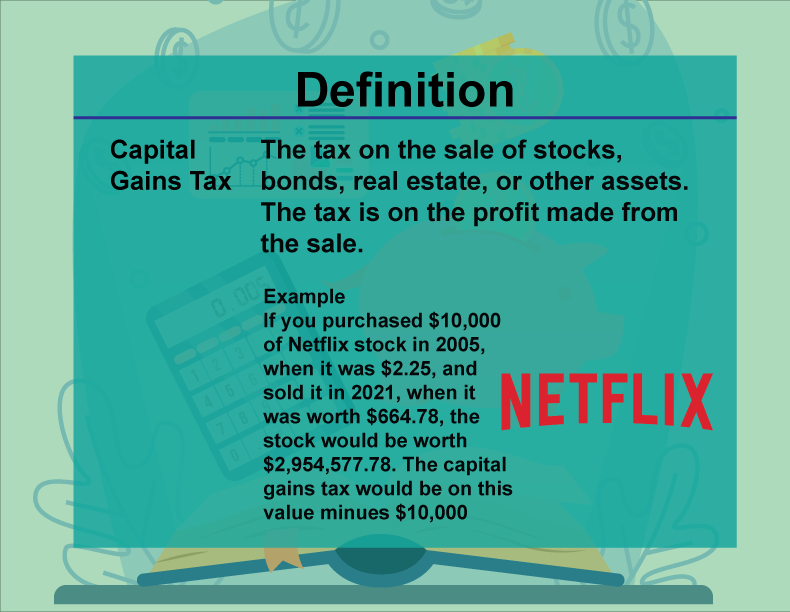
Display Title
Definition--Financial Literacy--Capital Gains Tax
Display Title
Capital Gains Tax

Topic
Financial Literacy
Definition
Capital gains tax is a tax on the profit realized from the sale of a non-inventory asset.
Description
Capital gains tax is levied on the profit made from selling assets like stocks, bonds, or real estate. This tax is crucial for individuals and businesses as it affects the net return on investments. Understanding capital gains tax helps in strategic planning of asset sales to optimize tax liabilities. In real-world applications, investors often consider the timing of asset sales to minimize tax impact. Algebraically, the capital gain is calculated as the selling price minus the purchase price, and the tax is applied to this gain. In math education, this concept introduces students to tax calculations and investment strategies. A teacher might explain, "When you sell an asset for more than you paid, the profit is taxed as capital gains, affecting how much you actually keep."

For a complete collection of terms related to Financial Literacy click on this link: Financial Literacy Collection.
| Common Core Standards | CCSS.MATH.CONTENT.HSA.CED.A.1 |
|---|---|
| Grade Range | 8 - 10 |
| Curriculum Nodes |
Algebra • Expressions, Equations, and Inequalities • Numerical and Algebraic Expressions |
| Copyright Year | 2023 |
| Keywords | financial literacy, capital, Capital Gains Tax, Capital Loss |